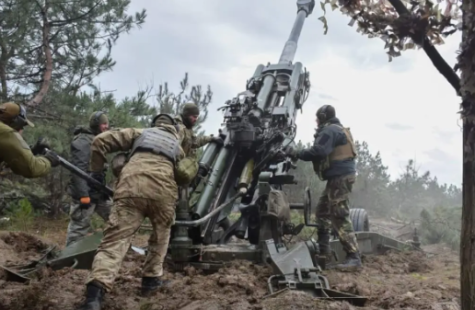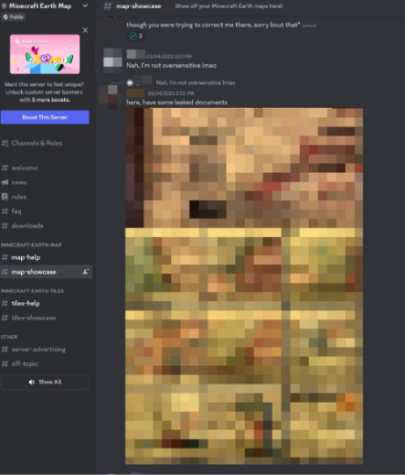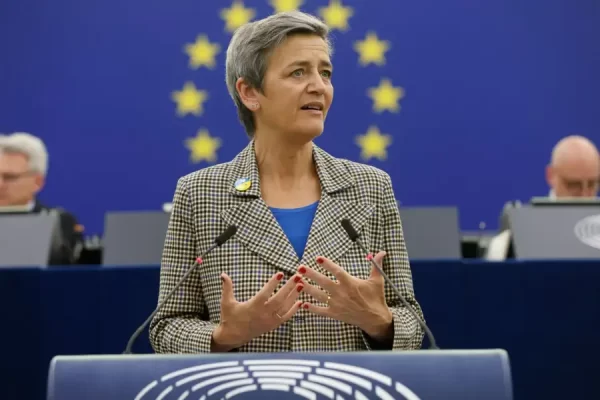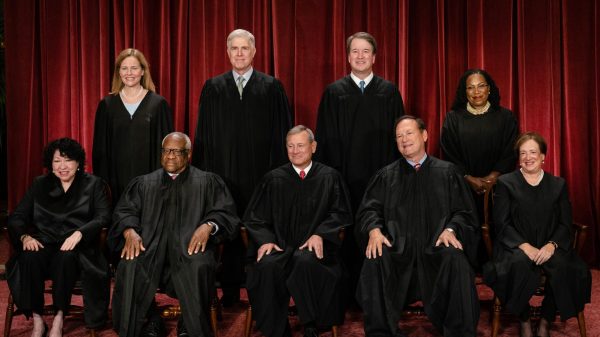“Top secret” information about Russian-Ukraine war leaked

Police station at Maple Street in North Dighton, Massachusetts where Jack Teixera was arrested on April 13, 2023. (Kylie Cooper/Washington post)
At least 10 documents containing “top secret” information about the Russia-Ukraine war were leaked on a “Minecraft” Discord server.
Discord is a gaming social media platform that allows people to connect through video, voice chat, or text messages.
The classified documents were posted on a server named “Minecraft Earth Map” on March 4.
Online media coverage of the issue and investigation into the leak’s origin occurred a month later after the documents spread to 4Chan and Telegram, two major social media platforms.
The Justice Department and Pentagon officials have since discovered 100 leaked files detailing classified information on Russia, Ukraine, Canada, China, Israel, South Korea, the Indo-Pacific military theater, and the Middle East.

Specific information in the documents
Although United States allies, such as South Korea and Ukraine, claim that a number of the documents are fabricated, they still pose a threat to the U.S.-Ukrainian war effort.
The documents prevent the U.S. from accessing important information on Russia’s war tactics and provide Russia with a military advantage.
This is due to the fact that the files mention U.S. knowledge of Russian agencies, Ukraine’s weak air force, and the North Atlantic Treaty Organization’s (NATO) plan to build up Ukraine’s military.
According to the New York Times, the leaked information also threatens the strength of the coalition built to aid Ukraine in the war, by exposing data confirming that the U.S. is “spying on its allies.” In response, allied countries became hesitant to share confidential information with the United States.
How the documents spread
The user who originally posted the documents claimed they were found on a Discord server created by a Youtuber named @Wow_Mao.
In an interview for New York Times @Wow_Mao said this fact was “hilarious” and also admitted to poorly regulating the Discord server.

It is also possible that the leak originated in a Discord server named, “Thug Shaker Central,” by a user called “the O.G.” or “the original gangster”.
“He ( the O.G.) was the leader,” said an unidentified member from the server, in an interview for the Post.
The same user stated that the identity of the “O.G.” was a soldier serving on a military base. With this information, Federal Bureau of Investigation (FBI) agents arrested 21-year-old Jack Teixiera, an Air National Guardsman allegedly working at Joint Base Cape Cod, for being a possible origin of the leak.
However, despite these claims, the validity of the documents found on “Thug Shaker Central” was put into question after the images of the server (sent as proof of the leak) “were screengrabs and not a link to the original server post, which has been taken down.” This makes it “[impossible] to independently verify [the] authenticity,” wrote Aric Toler, head of research and training for Bellingcat, an intelligence group.
The dangers of social media
Despite the ongoing debate over the origin of the documents, many agree that online platforms and the spread of social media can be dangerous as it gives groups such as terrorists, neo-Nazis, and white nationalists, the ability to spread information anonymously.
These sites have also been criticized by U.S. counter-intelligence officials who claim that they can be used by foreign intelligence to gain classified information from Americans with security clearances.
The past trend
The usage of social media to spread classified data is not a new issue, information leaks occurred on the online video game “War and Thunder” and on a website called WikiLeaks.
Players of “War and Thunder”, a combat video game, leaked private information in posts entailing detailed manuals of British, French, and Chinese tanks.
Although the posts were removed by the game developer, Gaijin Entertainment, the secret intel was still able to spread.
Anton Yudintsev, the founder of Gaijin Entertainment, addressed the incident by stating that, “there is no way to completely prevent people from publishing something on the internet, [all we can do is] delete the posts and permanently ban those who break the rules, so our users know that they risk everything essentially for nothing.”
WikiLeaks, a website originally created to share information, became notorious for leaking information that damaged U.S. National Security.
The platform leaked information about the wars in Afghanistan and Iraq, secret documents from the U.S. military and State Department, and private discussions with human rights activists over issues within Iraq.
These information leaks discredited the U.S. and hindered its ability to be trusted and connected with other countries.
The ongoing issue
The spread of misinformation through social media presents an ongoing issue in dangering the U.S. position in international affairs.
U.S. actions to balance online platforms while securing private information continue to be a topic of discussion for the future.





